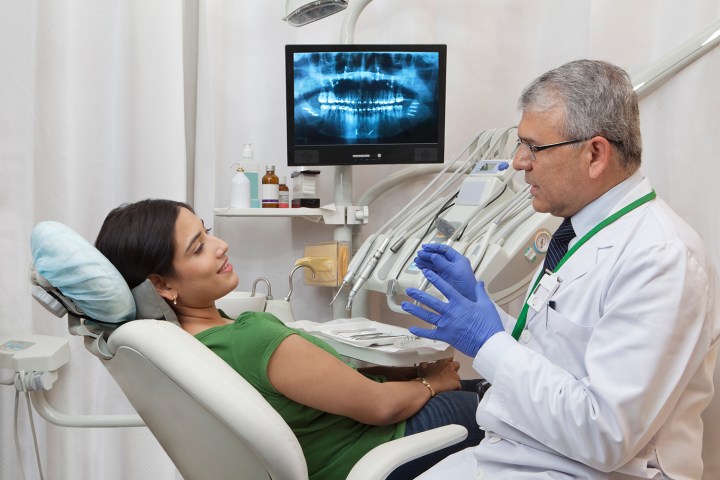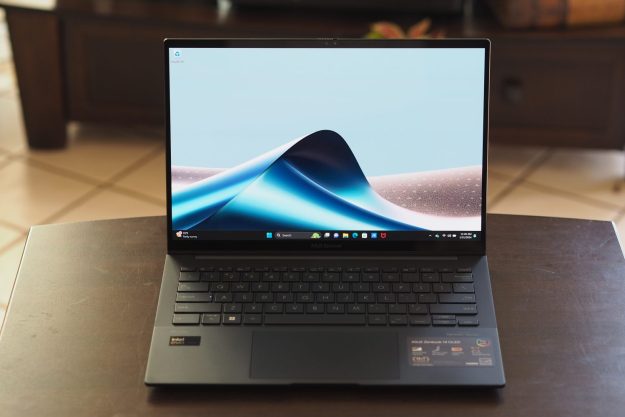
Yes, that’s right. It’s cryptocurrency for your teeth.
Called Dentacoin, it pitches itself as a way to improve dental health, cut out insurance companies as middle men, and foster cooperation between dentists and patients. But can a currency with so specific a role possibly hope to compete in a space with 700+ other crypto coins, including the granddaddy of them all, Bitcoin?
If your response to that question was a huff of derision, you’re not alone. A cryptocurrency used exclusively to pay your dentist seems rather ridiculous, and it goes against the broad goal of ‘digital cash’ that most cryptocurrencies aim for. Why would you trade real world money, which can be used to pay for anything, for something that can only be used for dental care?
This smile is no joke
Your laughter would be met with a stony – if well maintained – smile from Dentacoin’s founders, and its associated foundation. Highlighting the blockchain’s ability to offer a decentralized infrastructure that is free from political pressure and regulatory interference, they believe that Dentacoin could pave the way to a brighter future for all.
That’s a big claim for a system that gives you some money back on your next scale and polish, but its proponents claim that the immediate benefits of Dentacoin are simple and direct. Dentistry patients will be rewarded Dentacoins for taking part in surveys and reviews of dental practices and procedures, which they can then use to pay for future treatments or dental products. In return, those dental practices receive detailed feedback from their customers, and can use that information for market research purposes.
It sounds more like a supermarket reward point system.
On top of that, the blockchain itself can operate as a trusted contractual agreement between patients and practices, ensuring that the public can see who is paying who for what services. In other words, Dentacoin wants to combine paid surveys with an unalterable review platform.
While it’s leveraging new technologies to complete this, the core concept seems less than revolutionary. Indeed, it sounds more like a supermarket reward point system, or a gift card. Why couldn’t a dentist just have its own reward card complete with tooth stamps for a free checkup?
Although the blockchain system’s ability to identify a ‘verified customer’ does offer more concrete proof of real patients leaving reviews, customer feedback is not impossible to find as it is, and there’s no sign that fraudulent reviews are an industry problem. While pitched as a benefit to patients, it looks as though paranoid dentists are the true target audience.
Who takes Dentacoin? Not many dentists, it turns out
According to Dentacoin’s backers, as many as 6,000 people are already making use of the Dentacoin system – but only two dental practices in Europe accept it as a currency. You could be sitting on a Dentacoin gold mine, and the best you could hope for is a choice of two practices, very likely located on another continent. Although the chicken and egg problem is pervasive in all new technological platforms and services, it seems to be a fatal flaw of this already limited system.
There’s also the issue of where the monetary value in Dentacoin comes from. A closed loop financial system is only as good as its users’ ability to cash out, to trade it for real money in both directions. Dentacoin makes that difficult. Any disruption in trust will undermine that.
For now, Dentacoins are centrally produced and controlled, to ensure they’re given out fairly. Where it becomes more difficult to justify is years down the line, when stockpiles of Dentacoins have been created at various tooth drillers. The Dentacoin whitepaper suggests that at that point, the dentists themselves can then reward patients for surveys and feedback with those tokens. How can a review system possibly operate fairly, when it will rely on the companies being reviewed to, effectively, pay for the reviewers’ services?
Worse, the currency is likely to be volatile. As we have seen with Bitcoin and Ethereum, many factors outside the market itself can have an impact on a cryptocurrency’s implicit value, which could destroy collections overnight, or create potential Dentacoin millionaires – who would then have few avenues for spending the currency. There’s a limit to how many cavities you need filled.
Another little currency with big problems
These problems are only a concern if the coin becomes popular, and most believe it won’t even come close to achieving. As host of the Bitcoin news show, Vortex, told DigitalTrends, altcoins like Dentacoin “do not have the capability to scale to global audiences because blockchains are inherently slow and expensive despite the extraordinary claims made by these founders.”
A lack of market share only enhances a cryptocurrency’s volatility, which in turn makes it susceptible to the influences of individuals and small groups. Big investments or sales of the coin would lead to huge changes in its value, making it dangerous for investors, and ripe for exploitation.
“None of these app coins have enough market share to provide any real liquidity.”
“None of these app coins currently have enough market share to provide any real liquidity for proper investors,” Vortex said. Their books are razor thin, so anyone can come along and either pump or dump the market price very easily, which leaves the chain quite open to attacks and manipulation.”
Dentacoin’s existence underscores the difficulties that still face cryptocurrency’s efforts to gain mainstream legitimacy, yet also shows why investors have flocked to the original digital coin – Bitcoin. Stability matters, and struggling alternatives like Dentacoin only underscore that fact.
At best, Dentacoin is a misguided attempt to leverage a vogue technology to over complicate systems already in place. At worst, it could wipe the smile off the face of naive investors – and patients.
Editors' Recommendations
- Intel may be working on specialized chip for mining Bitcoin
- Passing the $1 trillion mark, Bitcoin is almost as big as Google
- Hackers demanding bitcoin payments for code held hostage from GitHub and GitLab




